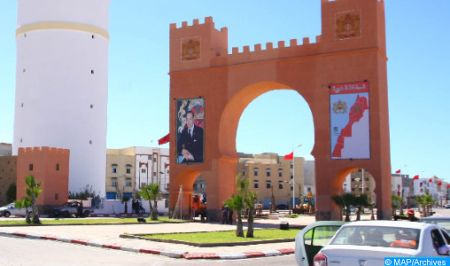Sahara: Moroccan Diplomacy Scores Points
Paris – In the Sahara issue, the Moroccan diplomacy has “scored points”, affirms the French news site Mondafrique, stressing that the decision of the American administration to recognize the Moroccanness of Sahara “reinforces an indisputable international dynamic”. “In recent years, the Moroccan strategy adopted to marginalize the Polisario Front, the armed wing of the phoney Republic, has scored points,” notes the French media in an analysis entitled “The Moroccan Sahara is part of history”. Returning in force to the African Union, the Moroccan diplomacy has found many allies within the Arab and African world. Between Laâyoune and Dakhla, the Moroccan Kingdom has encouraged the opening of fifteen consulates general of African countries, notes Mondeafrique in this analysis signed by its founder Nicolas Beau. According to Beau, the decision of the American administration to recognize the Moroccanness of the Sahara “reinforces an indisputable international dynamic”, saying that regional balances are also tilting in favor of Rabat. He added that this is a real regional dynamic that could extend to Senegal and West Africa. A dynamic now possible if the situation in the Sahara stabilizes. “As for the Algerian generals, they no longer have the financial means or the political legitimacy to support Polisario fighters. A large majority of the Algerian people is now indifferent to this facade nationalism”, adds the columnist, believing that it is time that the Algerian leaders, faced with the growing demands of their Kabyle minority, finally make a solid examination of conscience. The analyst, who discussed the genesis of the conflict in the Moroccan Sahara, notes that if the support of the Algerian generals had not enabled the Polisario to survive in improbable camps for forty-five years, the claims of the separatists would have been swept away by the wind of history. He also mentioned a “certainty”, namely that a Sahrawi Republic would not be viable today, especially as a territory of 250,000 square kilometers, populated by a few hundred thousand inhabitants, could be, in this unstable region, a prey to jihadist armed groups.

